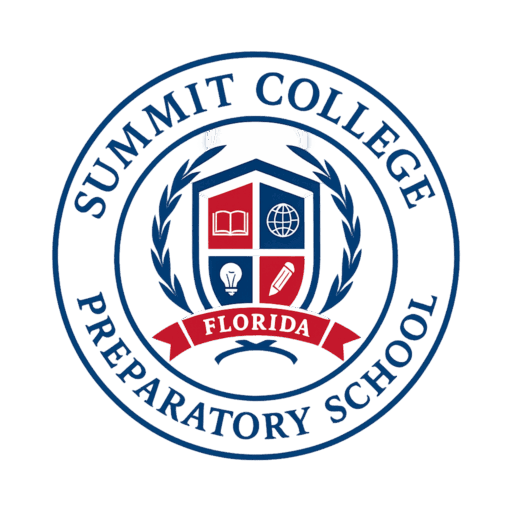Grade 10 – Chemistry (Standard)
Course Overview
This full-year Chemistry course provides a comprehensive introduction to the principles of chemical science. Students learn to describe, analyze, and predict chemical phenomena through laboratory investigations and problem-solving. Topics include atomic structure, chemical bonding, reactions, stoichiometry, thermochemistry, and gas laws.
Through inquiry-based labs, real-world applications, and collaborative projects, students build scientific reasoning skills and an understanding of the role chemistry plays in biological, environmental, and industrial systems. The course prepares students for advanced science coursework and standardized assessments aligned to Florida standards.
Learning Outcomes by Quarter
- Quarter 1: Matter classification, physical and chemical changes, atomic theory, periodic table.
- Quarter 2: Chemical bonding, molecular geometry, intermolecular forces, naming compounds.
- Quarter 3: Chemical reactions, stoichiometry, conservation of mass, solutions and molarity.
- Quarter 4: Thermochemistry, gas laws, equilibrium, acids and bases, nuclear chemistry.
Instructional Methods
Instruction includes lecture demonstrations, guided inquiry, hands-on laboratory experiments, modeling activities, data analysis, and group collaboration. Emphasis is placed on critical thinking, scientific argumentation, and interpreting experimental evidence.
Assessment and Grading
| Category | Weight |
|---|---|
| Lab Reports & Projects | 35% |
| Tests & Quizzes | 30% |
| Homework & Practice | 15% |
| Class Participation | 10% |
| Reflections & Presentations | 10% |
Florida Standards Alignment
| Topic | Florida Benchmark | Application |
|---|---|---|
| Atomic Structure | SC.912.P.8.4 | Interpret models and isotopes |
| Chemical Reactions | SC.912.P.10.6 | Analyze energy transfer and reaction types |
| Periodic Table | SC.912.P.8.5 | Explain patterns in element properties |
| Stoichiometry | SC.912.P.8.7 | Use mole ratios in chemical calculations |
Academic Vocabulary Matrix
| Category | Key Terms | Contextual Application |
|---|---|---|
| Atomic Theory | Electron, Proton, Neutron | Used in modeling atoms and isotopes |
| Bonding | Ionic, Covalent, Polar | Analyzed in compound formation |
| Reactions | Combustion, Synthesis, Decomposition | Classified in lab simulations |
| Thermochemistry | Endothermic, Exothermic, Enthalpy | Explored in calorimetry labs |
